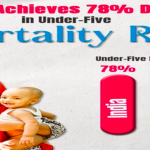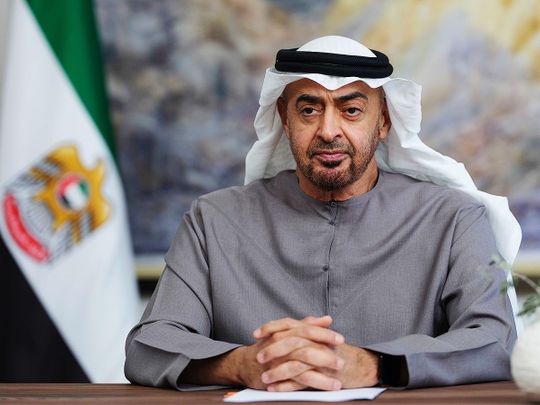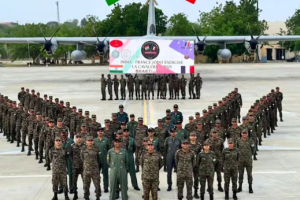The president of the United Arab Emirates, Sheikh Mohamed bin Zayed Al Nahyan, reportedly refused to provide financial assistance to the Palestinian Authority, as requested by Israeli Prime Minister Benjamin Netanyahu, and sarcastically suggested that he ask Ukraine instead.
According to Israeli media, Netanyahu called Sheikh Mohamed on Sunday to discuss the situation in Gaza and the West Bank, where Israel has imposed a blockade and a crackdown on Palestinian protesters and militants. Netanyahu asked the UAE leader to help pay the salaries of Palestinian workers who have been barred from entering Israel due to security concerns.
Sheikh Mohamed, however, rebuffed Netanyahu’s request and said that the UAE had already contributed enough to the Palestinians through humanitarian and development aid. He then mockingly told Netanyahu to “ask Zelenskyy for money”, referring to the Ukrainian President Volodymyr Zelenskyy, who is of Jewish descent and has close ties with Israel.
The UAE president’s response was seen as a sign of frustration and disappointment with Netanyahu, who has failed to deliver on the promises of the Abraham Accords, the normalization agreements signed by Israel, the UAE, Bahrain, Morocco and Sudan in 2020. The accords were brokered by the former US administration of Donald Trump, who was a staunch ally of Netanyahu.
The UAE and other Arab countries that normalized relations with Israel expected Netanyahu to halt the expansion of Jewish settlements in the occupied territories and to resume peace talks with the Palestinians. However, Netanyahu has continued to pursue a hardline policy towards the Palestinians, sparking a violent escalation that led to an 11-day war with Hamas in Gaza in May 2021.
The war, which killed more than 250 Palestinians and 13 Israelis, damaged the UAE’s image as a peacemaker and a regional leader. The UAE faced criticism from some Arab and Muslim countries and groups for maintaining its ties with Israel while the latter was bombing Gaza. The UAE also faced pressure from the US and the international community to use its influence to de-escalate the conflict and to support the reconstruction of Gaza.
The UAE has pledged $65 million for humanitarian and development projects in Gaza, but has conditioned its delivery on the involvement of the UN and the Palestinian Authority, and not Hamas, which controls the coastal enclave. The UAE has also called for a two-state solution to the Israeli-Palestinian conflict and for the protection of the rights and dignity of the Palestinian people.
Netanyahu, on the other hand, has rejected the two-state solution and has vowed to maintain Israel’s military and security dominance over the Palestinians. He has also accused the Palestinian Authority of inciting violence and terrorism against Israel and of paying stipends to the families of Palestinian prisoners and martyrs, which he calls “pay to slay”.
Netanyahu’s phone call with Sheikh Mohamed came amid a political crisis in Israel, where the prime minister is facing a possible ouster by a diverse coalition of opposition parties that are seeking to form a new government. The coalition, led by former defense minister Naftali Bennett and centrist leader Yair Lapid, includes parties from the left, the right and the center, as well as an Arab party for the first time in Israel’s history.
The coalition has agreed to form a rotational government, with Bennett serving as prime minister for the first two years and Lapid for the second two years. The coalition has also agreed to focus on domestic and economic issues and to avoid controversial matters such as the Israeli-Palestinian conflict.
The coalition has until Wednesday to present its agreement to the president and to win a vote of confidence in the parliament. If it succeeds, it will end Netanyahu’s 12-year rule, the longest in Israel’s history. If it fails, Israel will face another round of elections, the fifth in two years.











Add Comment